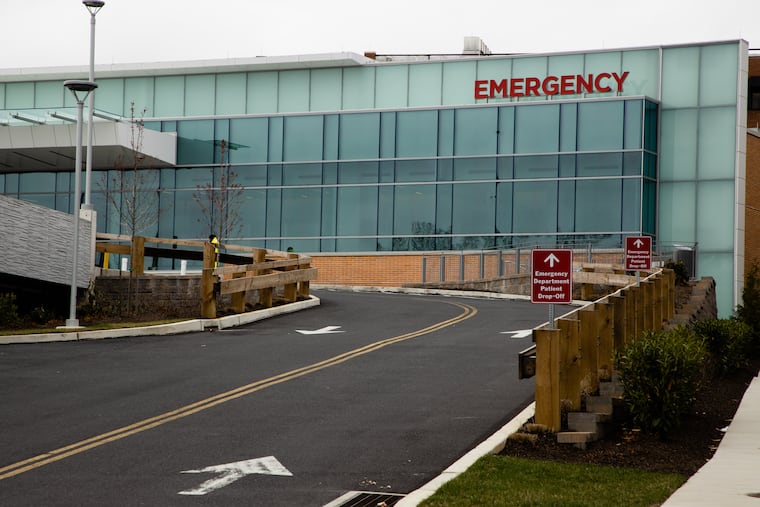Main Line Health pauses elective surgeries and procedures amid a surge in COVID-19 cases
The health system expects to surpass its record high of COVID-19 cases soon. The postponement decision was made to make more room for COVID-19 patients and the beds and staff needed to cover them.

Citing a near-record-high surge of COVID-19 patients across its four suburban hospitals, Main Line Health announced Sunday that it will “pause” all elective surgeries and procedures for the next two weeks to ensure there’s staffing and room to accommodate its rapidly rising caseload.
Jonathan Stallkamp, chief medical officer for Main Line Health, said COVID-19 cases have “increased exponentially” ever since Thanksgiving and the health system — which includes Lankenau Medical Center, Bryn Mawr Hospital, Paoli Hospital, and Riddle Hospital — is approaching its high, which was nearly 300 cases set in December 2020.
“We’re not the only ones, either,” Stallkamp said. “Every other health system in the area is either at or approaching their high, as well.”
Although Main Line Health doesn’t test for variants, a vast majority of its COVID-19 cases are believed to be the omicron variant, Stallkamp said. The contagious nature of the variant coupled with in-person holiday gatherings is a driving factor in the surge of cases, he said.
“Before, where you would take precautions and see a little bit of spread, it’s nothing like the spread of omicron,” Stallkamp said. “And it really hit Philly right before Christmas.”
The majority of COVID-19 patients at Main Line Health, about 70%, remain unvaccinated, he said.
“We do see some breakthrough cases but people are definitely not as sick as they would be if they weren’t vaccinated,” Stallkamp said.
Looking at the projections, Stallkamp said Main Line Health will most likely exceed its record number of COVID-19 patients this month. And with some vaccinated staffers forced to call out with breakthrough cases and winter being a normally high-volume time anyway, the decision was made to postpone elective surgeries to make more room for patients and the beds and staff needed to cover them.
“It’s the worst to cancel on a patient the night before their surgery,” Stallkamp said. “Looking at our numbers, we said we need to do this now to be fair to our patients and staff and be ready for any additional cases of COVID that hit us.”
While such surgeries as knee and hip replacements are on hold, other procedures, such as those for broken arms and coronary bypasses, remain ongoing, according to Stallkamp.
Main Line Health, which has also updated its visitor policy on its website, will continue to monitor case numbers and reassess the situation in two weeks. Stallkamp said he’s hopeful that elective surgeries and procedures will be resumed quickly.
“It’s a little déjà vu, per se, but I’m optimistic that this may be the last big hurrah of it, and I think a lot of people are going to get it and maybe not realize they get it because they’re vaccinated,” he said. “And at that point, I think we’ll have developed pretty decent herd immunity and be back to normal in springtime.”
It was unclear whether any other area hospitals or health systems were considering halting elective surgeries and procedures, but at least one, Penn Medicine, has placed stricter guidelines on its masking requirement as a result of the rise in COVID-19 cases.
As of Jan. 3, visitors to Penn Medicine must wear surgical masks, N95 masks, or KN95 masks. Cloth masks, gaiters, bandanas, masks with exhalation valves, gas masks, and face shields (unless for medical reasons) are not permitted.
Meanwhile, in New Jersey, where more schools are deciding to go virtual because of the rising tide of COVID-19 cases, the state’s first lady, Tammy Murphy, tested positive for COVID-19 on Sunday.
According to officials, Murphy, who is vaccinated and received a booster, is asymptomatic. Her family members, including Gov. Phil Murphy, have tested negative.
This article contains information from the Associated Press.